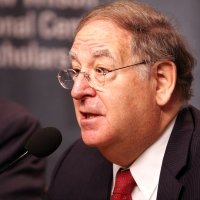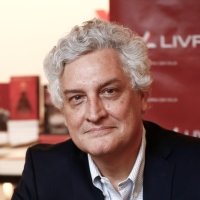The Meaning and Implication of the "Mensalão", Brazil's Largest Trial on Political Corruption
On September 19th the Brazilian Supreme Court approved a motion to partially reconsider its December 2012 sentences on the “Mensalão” case. The motion was presented by twelve of the twenty-five convicted Congressional deputies, Workers’ Party officials, members of President Lula’s administration and others. The “Mensalão” is the largest political corruption scandal in Brazilian history. It is viewed by analysts and legal experts as a landmark case in which, for the first time, high-ranking politicians were found guilty in a criminal trial and sentenced to prison terms for corruption charges. The acceptance of the appeal by the Brazilian Supreme Court delayed the conclusion of the trial and the possibility of jailing prominent public figures, further dividing public and expert opinions and sparking fears of a reaffirmation of the country’s culture of impunity. While most expressed disappointment and frustration, jurists and even some leading members of the opposition argued that the case remains a watershed development in a nation where the rule of law has historically been applied disproportionately to the poor and the enemies of those in power. The conclusion of the case is expected in the first semester of 2014.
On October 4th, the Brazil Institute, in partnership with the São Paulo FGV Law School and the Washington College of Law of American University convened a panel of experts from both countries to debate the Mensalão trial and its ramifications. Oscar Vilhena, Dean of the Getulio Vargas Law School and Marcelo Cavali, a federal judge in the state of São Paulo, shared their views on whether or not the Supreme Court’s decision will impact the core outcome of the trial. Judge Peter Messitte, Senior United States Judge for the District of Maryland juxtaposed the Brazilian and American Supreme Courts and how the different models affected the outcome and management of the trial. In addition, Professor Matthew Taylor of American University School of International Service offered a more academic perspective of the broader implication of the handling of the Mensalão and the construction of accountability in Brazil. The discussion was moderated by Paulo Sotero, Director of the Brazil Institute, and had participants in both Washington and São Paulo, who connected by video conference.
Oscar Vilhena started the debate by providing a brief outlook of the Mensalão trial and how the Brazilian Supreme Court came into play in this specific case. The Brazilian constitution has a specific clause that says that when members of parliament are involved in criminal cases, they should be tried by the Supreme Court. In addition, ever since 1993, all court sessions of the Supreme Court are televised. By allowing trials to be conducted in public, the entire nature of it is changed. A large portion of Brazilian society followed the entire “Mensalão trial, significantly politicizing it. The Supreme Court granted twenty five convictions. Twelve of them, involving jail terms for the defendants, were decided upon by a very divided court, or in other words, not by a super majority. These were the twelve defendants who asked for an appeal. The decision to grant them a reconsideration of their sentences caused a huge outcry within Brazilian society. However, according to Dr. Vilhena, the question that must be addressed is whether or not the approval of the appeal was right and in accordance with the bylaws of the court.
Judge Peter Messitte briefly touched upon the exact implications of the Supreme Court’s decision to accept the appeal and presented a comparison of the courts in the U.S. and Brazil. It is important to understand that the congressmen/women who appealed did not ask for a full exoneration, but a rehearing. In fact, they are only challenging convictions based on conspiracy (formação de quadrilha), not those on accounts of corruption. According to Judge Messitte, this guarantees that there will in fact be punity. On the comparative level, Judge Messitte noted that the main differentiating factor between Brazil’s Supreme Court and the American one is that in the U.S. it has no criminal jurisdiction. That is, in the United States, even if you are a politician or a high-level public servant, you are tried in district courts. In Brazil, the institute of “Foro Privilegiado” grants certain high-level people such as elected officials and cabinet members of the federal government the right to be tried in high-level courts. These high-level courts are the ones that traditionally review cases being reconsidered. Hence, the question of whether convictions should be revisited if they were initially decided upon by the highest level court in the Country becomes somewhat dubious. In Brazilian courts, Embargos Infringentes are very commonplace. These are repeals against judgments delivered by courts that are not unanimous. Although embargos infringentes are indeed applicable in the case of the twelve congressional deputies because sentences were not agreed upon unanimously, the fact that they were tried in the highest level court makes judging whether their September 19th decision was right or wrong somewhat difficult.
Judge Marcelo Cavali began by sharing his belief that the Mensalão represents a watershed in the Brazilian justice system, explaining that the core of the trial will not be changed by the decision of the Supreme Federal Court to reconsider the sentence of twelve individuals. The greatest meaning of the trial is that white collar criminals will not get impunity. However, Cavali did emphasize that the Brazilian justice system is very outdated and morose. According to him, the formula of impunity stems from the various courts and the appeals within each one of them, which lengthen the criminal trial process. In Brazil, no accused person goes to jail before the exhaustion of appeals. This indicates that the judicial legal framework has to be worked on, especially with regards to the system of appeals. Cavali noted that the Supreme Court of Justice has the discretion to decide whether or not they will receive or accept an appeal through the repercussão geral policy, and yet, the tool is not used as it should. Judge Cavali concluded that the Supreme Court must be changed in order to become a true and efficient constitutional court, one that deals solely with constitutional matters, and that all criminal cases should be dealt with by lower courts.
Matthew Taylor provided a broader picture on accountability in Brazil. When looking at the evolution in federal accountability agencies over the past thirty years, great improvements have been achieved. Professor Taylor highlighted that there has been an enormous growth in accountability efforts within the federal bureaucracy, especially under the Lula administration. On the state level, however, these improvements have not matched up to federal standards. According to him, the Mensalão is “the exception that proves the rule.” Courts in Brazil are the bottlenecks to justice, this year alone only one percent of cases were finalized. With 90 million cases in progress, there is significant congestion at the top of the judicial pyramid. With the decision to privilege the principle of ample defense (principio de ampla defesa), appeals are maximized over efficiency and equality. This inevitably causes delays in courts, which facilitates corruption. The Federal Supreme Court of Brazil is poorly equipped to hear criminal cases, obstructing their ability to work on constitutional issues. The increasing politicization of courts is inevitable given court appointments. There is a pressing and urgent need for the reform of the Brazilian judicial system. However, Professor Taylor expressed that he remains optimistic about the overall construction of accountability in Brazil.
Compiled by Carolina Cardenas, Brazil Institute Intern
Click here to access FGV's footage of the event.
Speakers


Dean, Getulio Vargas Foundation Law School (FGV Direito SP)

Hosted By

Brazil Institute
The Brazil Institute—the only country-specific policy institution focused on Brazil in Washington—aims to deepen understanding of Brazil’s complex landscape and strengthen relations between Brazilian and US institutions across all sectors. Read more
